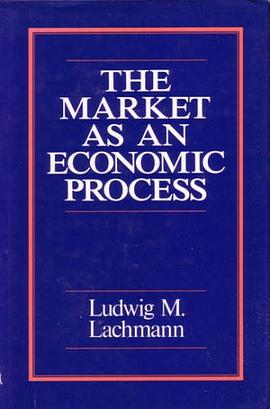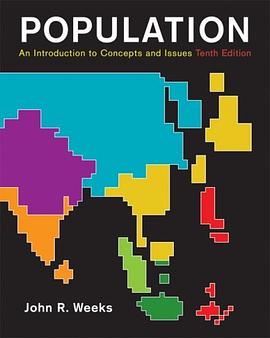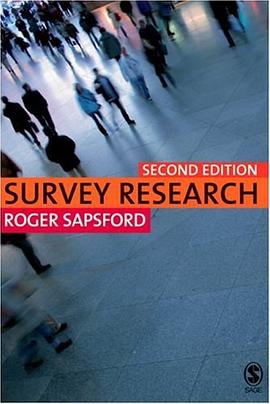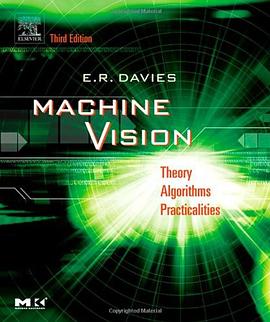
The market as an economic process. pdf epub mobi txt 電子書 下載2025
- 美國
- 經濟學
- 拉赫曼
- 奧地利學派
- Research
- Effectuation
- Austrian
- 經濟學
- 市場
- 經濟過程
- 價格發現
- 自發秩序
- 奧地利學派
- 復雜性
- 演化經濟學
- 創新
- 企業傢精神

具體描述
From: http://www.auburn.edu/~garriro/r8lachmann.htm
Review Article: The Market as an Economic Process
by Ludwig M. Lachmann.
New York: Basil Blackwell, 1986, pp. xii, 173.
Ludwig M. Lachmann has been writing about markets for half a century. Having received his formal education in Germany by the early 1930s, Lachmann went to England where, along with fellow student G. L. S. Shackle, he studied under Friedrich A. Hayek. After writing and lecturing for some years in London, he settled in at the University of Witwatersrand in Johannesburg, South Africa for several decades of continued scholarship.
Until the mid 1970s Lachmann was known to Americans only through his writings, and his influence on American economics was not great. But in 1974 he was one of three lecturers featured at a conference on Austrian economics held in South Royalton, Vermont and sponsored by the Institute for Humane Studies. Beginning in 1975 and largely as a result of the South Royalton lectures, Professor Lachmann has taught each spring semester at New York University, returning to Johannesburg for the remainder of the year.(1)
The Market as an Economic Process, itself the result of a process that began several years ago, serves as the major focus of this review. A second volume, Subjectivism, Intelligibility, and Economic Understanding: Essays in Honor of Ludwig M. Lachmann on his Eightieth Birthday (New York: New York University Press, 1986), plays a minor role. Because of the diversity of the twenty three papers that make up this birthday offering, no comprehensive account can be undertaken. But two of those papers, one by the reviewer, will aid in linking the arguments in Lachmann's own book to an important issue that has captured the attention of Lachmann and his readers for the last several years: the presence—or absence—in the market process of a tendency toward equilibrium. But before dealing with this or any other substantive issue, let me focus attention on Lachmann's vision (as Joseph Schumpeter used the term) of the market economy.
著者簡介
The German economist, Ludwig Lachmann, was a product of the 1930s L.S.E. - but an extreme product. Of the mixed "Continental" fare that the LSE offered, Lachmann took the Austrian School paradigm and ran with it. Devoutly dedicated to Menger's original vision of an entirely subjective economics, Lachmann attempted to detach the Austrian paradigm from its Walrasian and Jevonian companions. His early training at the hands of Werner Sombart and his prediliction for Weber had a methodological effect: Austrian Theory, Lachmann concluded, was to be characterized as a "genetic-causal" approach, a "verstende" view of social science to be wrought against the mathematical-functional, equilibrium, perfect- foresight approach of mainstream Neoclassical economics.
The "fundentalist Austrianism" of Lachmann was unique at the time - none of the then living Austrian economists really acknowledged their work to be as different from the mainstream as Lachmann claimed. But his work stressed all the points he thought distinctive: subjectivism, expectations, uncertainty, the Hayekian cycle, time-defined capital, methodological individualism, alternative cost and, above all, "market process". Although Lachmann was effectively "exiled" from economics while at Witwatersrand in South Africa, his work was highly influential upon the later "American branch" of the Austrian School. His work on capital theory (1956) resonates issues which were soon to be taken up in the Cambridge Capital Controversy.
圖書目錄
讀後感
評分
評分
評分
評分
用戶評價
相關圖書
本站所有內容均為互聯網搜索引擎提供的公開搜索信息,本站不存儲任何數據與內容,任何內容與數據均與本站無關,如有需要請聯繫相關搜索引擎包括但不限於百度,google,bing,sogou 等
© 2025 book.quotespace.org All Rights Reserved. 小美書屋 版权所有




















